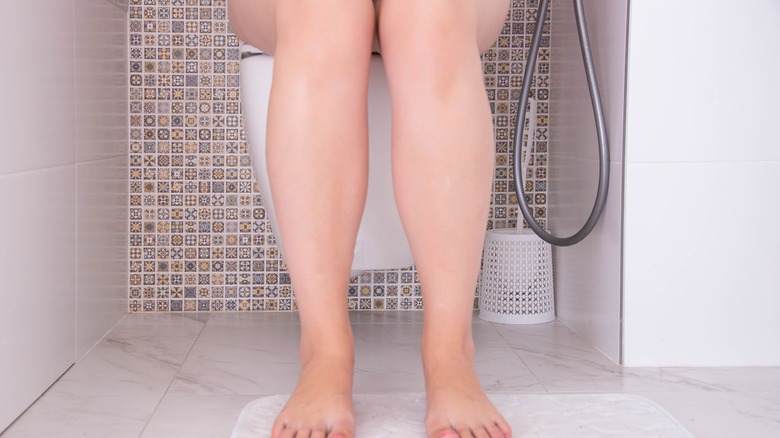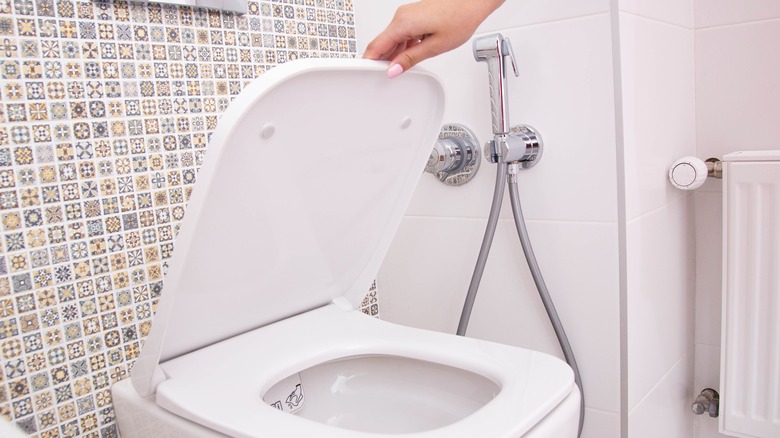How To Improve Your Bathroom Habits For Healthier Bowel Movements
Pooping is the body's natural way of getting rid of waste compounds and unprocessed food, explains Medical News Today. Proper bowel movements are critical to your body's well-being. In fact, a person's bowel movements can tell a lot about their health.
People are often concerned about how much pooping is normal and what constitutes as "abnormal." Per Cleveland Clinic, there is no perfect number of times you can poop in a day. A healthy bowel movement means you might defecate between three times a week and three times a day.
However, the consistency, color, and frequency of your bowel movements are useful in determining if you have pooping problems. The 2 most common issues with pooping are constipation and diarrhea, per Cleveland Clinic. Both can be symptoms of underlying medical conditions and help in medical diagnosis.
Your bowel habits could depend on various factors such as your diet, age, hydration levels, physical activity, and medical history, explains Medical News Today. Even gender plays a role when it comes to problems with bowel movements. In a 2018 study published in the Journal of Neurogastroenterology and Motility, scientists found that women are more susceptible to developing Irritable Bowel Syndrome. This condition causes abdominal pain and a haphazard pattern of passing bowels.
Good habits to follow for healthy bowel movements
According to Oxygen, you may want to avoid spending a lot of time sitting on the toilet. Many people choose to play a game or two, chat with friends, or catch up on emails while pooping, which can drastically affect your bottom.
In an interview with Oxygen, Dr. Fola May, a professional gastroenterologist, said that sitting on the toilet for too long can exert pressure on your pelvic region, typically the anus and rectum. The excess pressure on the rectal veins is how people usually end up with hemorrhoids, reports Healthline. It is a painful condition that causes swollen veins in the anus, warns Mayo Clinic.
Per experts, defecating usually takes about 12 seconds, and you should not spend longer than 10 minutes on the toilet (via Geisinger). If you are unable to finish within that time, it is best to get up, move on, and then return whenever you get the urge again.
Drink lots of fluids to make bowel movements smoother. The National Institute of Diabetes and Digestive and Kidney Disease (NIDDKD) advises eating more fiber-rich foods as they help reduce the risk of constipation. Plus, being physically active is important to prevent constipation.


